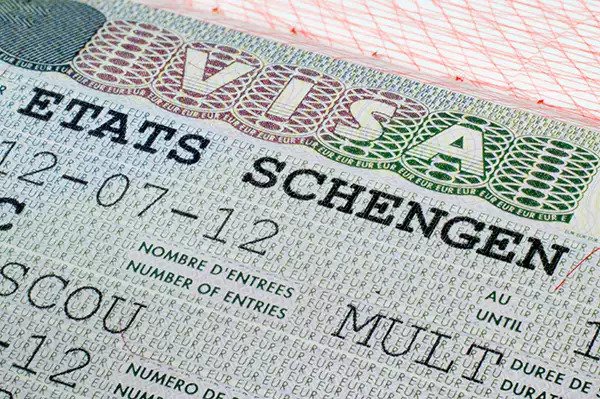It’s the most common question that every traveler have. As per the Schengen rules, you can obtain a short-term visa for Schengen countries for a maximum of 90 days period. However, travelers don’t find 90 days enough to visit all 26 Schengen countries. Extending your short-term Schengen visa is hard, but it’s quite possible if you have a strong reason for visa extension.
Schengen Countries and the 90-days Limit
Schengen area consists of 26 countries which have agreed to abolish internal border controls and passports. All of 26 countries act as one, and every citizen can go anywhere they want. The 26 countries are named as:
| Austria | Belgium |
| Czech Republic | Denmark |
| Estonia | Finland |
| Franch | Germany |
| Greece | Hungary |
| Iceland | Italy |
| Latvia | Liechtenstein |
| Lithuania | Luxembourg |
| Malta | Netherlands |
| Norway | Poland |
| Portugal | Slovakia |
| Slovenia | Spain |
| Sweden | Switzerland |
Out of the above mentioned 26 countries, Liechtenstein, Iceland, Norway, and Switzerland are non-EU members (states with border control).
Till date there are 28 EU members. Out of rest 6, Bulgaria, Croatia, Cyprus and Romania, are pending and other 2, the United Kingdom and Ireland has decided to opt out.
The Schengen short-term visa will allow you to stay in all the above mentioned 26 Schengen countries. If you are a non-Schengen citizen, then you can enter the area without visa (your passport will be stamped for only arrival and departure) if you are a resident of the below mentioned countries.
| Albania | Andorra | Antigua and Barbuda | Argentina |
| Australia | Bahamas | Barbados | Bermuda |
| Bosnia and Herzegovina | Brazil | Brunei Darussalam | Bulgaria |
| Canada | Chile | Costa Rica | Croatia |
| Cyprus | El Salvador | Guatemala | Honduras |
| Hong Kong SAR | Israel | Japan | Macao SAR |
| Macedonia | Malaysia | Mauritius | Mexico |
| Moldova | Monaco | Montenegro | New Zealand |
| Nicaragua | Panama | Paraguay | Romania |
| Saint Kitts and Nevis | San Marino | Serbia | Seychelles |
| Singapore | South Korea | Taiwan | USA |
| Uruguay | Vatican | Venezuela |
If you are not a resident of the above mentioned countries, then you need a short-term Schengen visa.
Once you enter a Schengen country, you can stay for 90 days. If you don’t leave after this period, then you might be subjected to a fine/deportation, or will be banned from the Schengen area for a maximum of 1 to 3 years or more.
However if you wish to stay longer than 90-days limit, then follow the below mentioned different ways to stay longer in Schengen area legally.
Different Ways to Stay Longer in Schengen Area Legally
Schengen short-term visa extensions are only permitted by the European Parliament and the Council regulation No. 810/2009 of 13 July 2009. The chances of getting one is very low if you don’t have enough strong reason. Below are the acceptable reasons for a short-term Schengen visa extension:
1. Humanitarian Reasons
You will be allowed to stay longer than your 90-days limit based on humanitarian reasons. The reasons can be: staying on one of the Schengen member states to continue receiving medical treatment, or taking part in the funeral of your family member due to sudden death, or supporting a close person of yours who is going through a hardship, etc.
2. Study
Student visas is all time a good reason for visa extensions. It’s not hard to obtain if you are accepted, invited, or enrolled by a school, or university in Schengen area. You should apply for it before enter a Schengen country. Opting for an undergraduate or masters program is very costly. So, you can opt for simple short language courses like learning Italy or Spain. It’s often cheaper.
There are few Schengen countries that choose to remove any tuition fees for international, or local students. These countries are Finland, Norway, Austria, Hungary, France, Italy, and Belgium. They have either free tuition fees or have the cheapest one.
You can do part-time work while studying, can try for a scholarship, or simple try for an enrollment in free universities as mentioned in the above countries.
3. Union/Reunion
Union or reunion are simply the most special and conventional ways to obtain a visa extension for a longer stay in a Schengen country. The reasons could be a family reunion, home stays, cohabitation, or marriage.
4. Force Majeure
You have a chance of getting a short-term Schengen visa extension prior to your visa expiration for some unexpected events in your home country like, extreme weather conditions, sudden earthquakes, conflict or war, violent protest across the country, etc. EU will grant you with a visa extension for a few weeks, or might be more weeks depending upon the situation in your home country. You can apply for renewing your short-term visa if the situation doesn’t change.
5. Late Entry
You can consider this late entry reason only if you have a single-entry short-term visa. Late entry is the best reason for visa extension. If you have entered in a Schengen country after your visa validity then you can apply for a 2-week visa extension. Suppose, you visa validity is August 1, but you entered on August 15, then you can apply for a 2-week extension and you are very likely to get it.
6. Personal Reasons
You might have several personal reasons like unplanned wedding of your/your relative, your unfinished business, etc. You can apply for a visa extension and the final decision will be given by the immigration authorities whether you should be granted with the extension or not.
Requirements for a Schengen Visa Extension
- Passport with current visa under which you entered the Schengen area.
- One photo fulfilling the criteria and visa photo requirements.
- Schengen visa application form for a short-term visa extension.
- Travel Health Insurance that covers the whole period which you have applied for extension and the whole Schengen area.
- Proof of enough financial support and,
- Documents with proof of your reasons and situations for getting a visa extension.
Schedule an appointment for an interview online at immigration authorities after you collect all above mentioned documents. This interview is very essential for getting a visa extension.
When Should You Apply for a Short-term Schengen Visa Extension?
You should apply for your visa extension before your visa expiration. You will be deported for your overstay despite of your good reasons if you apply for a visa extension after your visa expiry or a even a day later of expiry. So keep an eye on your visa expiry date and apply at least a week before your visa expiry date.
Where Should You Apply for Your Schengen Visa Extension?
Place of visa extension totally depends on the EU member state you are staying. You have to remain in the present country until you get your Schengen visa extension. Apply at EU immigration authorities in the particular country you are residing and where you need to stay for longer.
Generally the visa extension process takes a few days. Till then, you are advised to remain in that particular country where you have submitted your visa extension application even after your visa expiry. You can’t travel to other Schnegen countries within this time period.
If you get your extended visa then you can stay or else you have to leave in one or two days.
Schengen Visa Extension Fees
No fee is required if you are applying for a visa extension for the first time. But you need to pay 30 euros if your reasons for extension are late entry or personal reasons.
If you are applying for a visa extension for the 2nd time then, you have to pay as per your age:
- 30 euros for minor
- 60 euros for adults
So out of this whole piece of information, the major thing you need to remember is check migration rules properly as per your passport and nationality. Keep an eye on your visa expiry and well aware about your benefits and limits. Do your research before you travel.
Feel free to reach us anytime for any help or assistance with Schengen visa, travel or flight itineraries, and travel insurance. Contact us and visit our website for more information.



